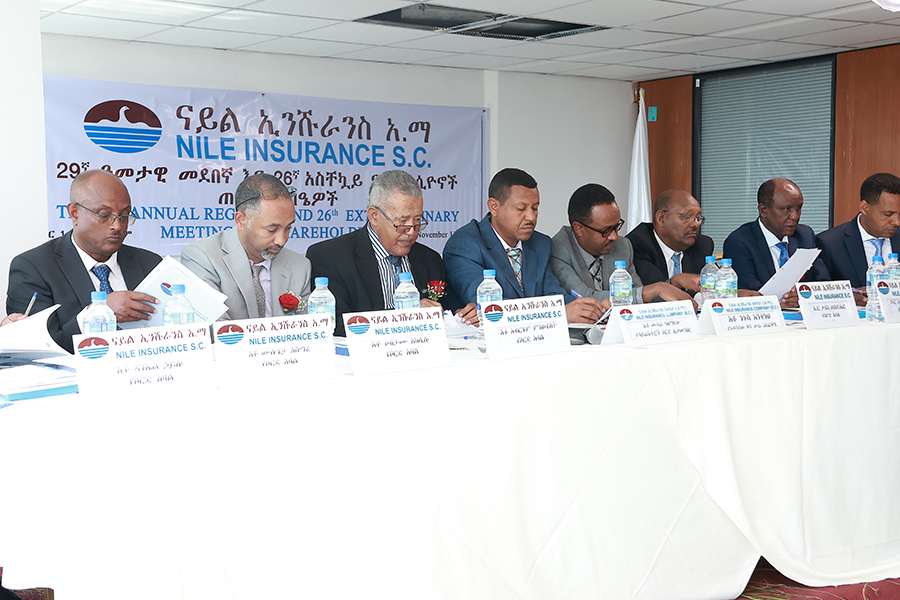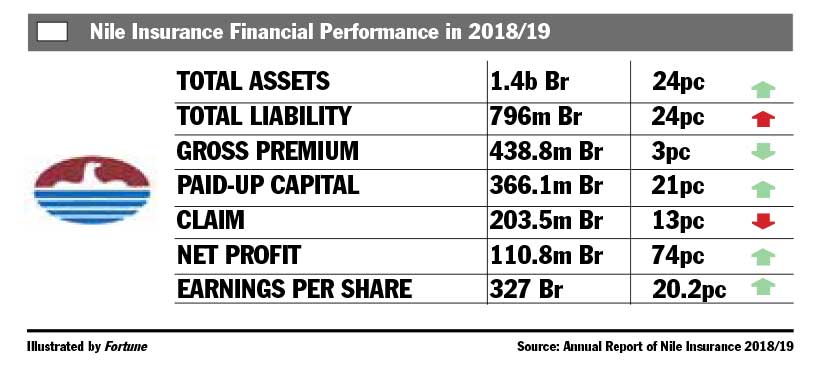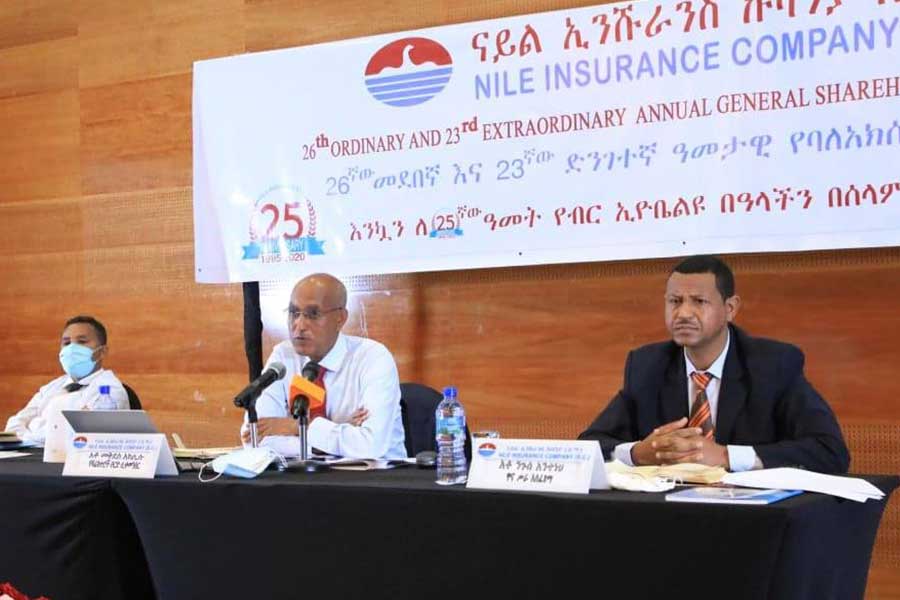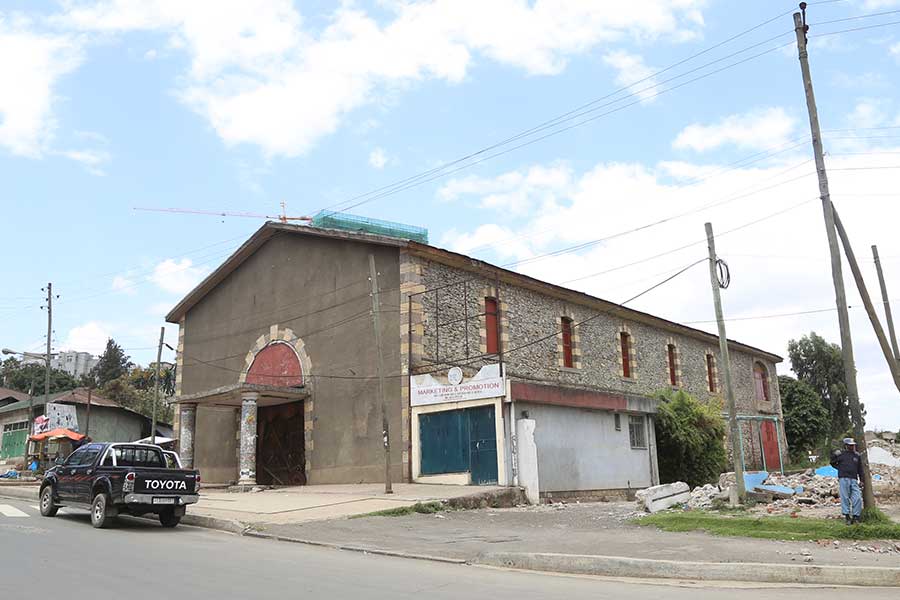
Commentaries | Aug 22,2020
Apr 10 , 2021
By Christian Tesfaye
There was some hope that Ethiopia, Egypt and Sudan would come to some form of general understanding over the Grand Ethiopian Renaissance Dam (GERD) when they agreed to a three-day summit in Kinshasa, capital of the Democratic Republic of the Congo (DRC). It was not to be.
The African Union, currently chaired by DRC’s president, was supposed to play the negotiator's role. This was not enough for Sudan and Egypt, according to the Ethiopian delegation that accused its upstream neighbours of attempting to elevate the European Union and the United States to the same role as the AU. If this is the case, indeed, there is much to be skeptical about any sort of role that could be played (especially) by the United States after its conduct during a similar exercise of negotiations previously in Washington.
Deadlocked, nothing much has changed. Egypt remains stubborn that a drop of what it currently receives must not be touched. Sudan remains on the side of Egypt, at least for now, given how much it dilly-dallies over the issue. Ethiopia plans to continue with the second filling of the dam, despite Egypt’s dire warnings.
Whether or not the reservoir is filled and the GERD becomes operational following a consensus or through unilateral action by Ethiopia, its importance can scarcely be overstated. Indeed, it is such natural resources that countries are supposed to make use of to drive their development ambitions. And for all the white elephant projects launched in this country to extensive loss of public resources and little to show for it in the end, that the one mega-project that serves as a symbol of resourcefulness and perseverance would come under such pressure is saddening.
It is all the more incomprehensible that, in a world suffering from the dire effects of greenhouse gases, produced mainly from burning coal to produce energy, and the environmental devastation that accidents in nuclear plants could cause, the GERD would get such a bad reputation. Such a significant investment in a renewable natural resource, to power economic development, including for export to other countries, should instead be encouraged.
Neither is there much clarity over why it would be expected of Ethiopia to see its water resources and fertile soil be exported without so much as compensation. A better proposition by Egypt over its downstream neighbour’s plan to utilise its own natural resources, if it believes that its interests would be impacted, should have been to offer some form of financial compensation. What it is doing now is not negotiating. It is merely threatening.
If the Nile is as important to its existence, should Egypt not pay, seeing as it is not its product?
Over 100 billion Br has already been spent on this colossal project. It is not at a stage where it can be delayed without incurring even higher costs. More importantly, it is desperately needed to power a growing economy, which would be impossible to do without such energy. Any other country would have done the same, but only earlier.
The GERD will not be enough, especially if it is the industry sector we envision leading the economy. Industry is the production of goods for the export sector and for domestic consumption. It means many factories that need to be kept running with rising demand. There is no alternative to building infrastructure to produce energy to keep up with growth. If there were, either the United States or the European Union - which play observer roles as if there is anything fair about twisting the arm of a country to negotiate over the use of its own resources – would have found it by now.
PUBLISHED ON
Apr 10,2021 [ VOL
22 , NO
1093]


Commentaries | Aug 22,2020

Radar | Nov 11,2023

Fortune News | Dec 21,2019

Radar | Nov 14,2020

Commentaries | Sep 11,2020

Fortune News | Nov 21,2020

Viewpoints | Mar 21,2020

Commentaries | Jun 13,2020

Editorial | Jun 20,2020

Radar | Apr 25,2020

My Opinion | 132045 Views | Aug 14,2021

My Opinion | 128442 Views | Aug 21,2021

My Opinion | 126369 Views | Sep 10,2021

My Opinion | 123991 Views | Aug 07,2021





Dec 22 , 2024 . By TIZITA SHEWAFERAW
Charged with transforming colossal state-owned enterprises into modern and competitiv...

Aug 18 , 2024 . By AKSAH ITALO
Although predictable Yonas Zerihun's job in the ride-hailing service is not immune to...

Jul 28 , 2024 . By TIZITA SHEWAFERAW
Unhabitual, perhaps too many, Samuel Gebreyohannes, 38, used to occasionally enjoy a couple of beers at breakfast. However, he recently swit...

Jul 13 , 2024 . By AKSAH ITALO
Investors who rely on tractors, trucks, and field vehicles for commuting, transporting commodities, and f...

Jul 12 , 2025
Political leaders and their policy advisors often promise great leaps forward, yet th...

Jul 5 , 2025
Six years ago, Ethiopia was the darling of international liberal commentators. A year...

Jun 28 , 2025
Meseret Damtie, the assertive auditor general, has never been shy about naming names...

Jun 21 , 2025
A well-worn adage says, “Budget is not destiny, but it is direction.” Examining t...

Jul 13 , 2025 . By YITBAREK GETACHEW
The Addis Abeba City Revenue Bureau has introduced a new directive set to reshape how...

Jul 13 , 2025 . By BEZAWIT HULUAGER
Addis Abeba has approved a record 350 billion Br budget for the 2025/26 fiscal year,...

Jul 13 , 2025 . By RUTH BERHANU
The Addis Abeba Revenue Bureau has scrapped a value-added tax (VAT) on unprocessed ve...

Jul 13 , 2025 . By NAHOM AYELE
Federal lawmakers have finally brought closure to a protracted and contentious tax de...